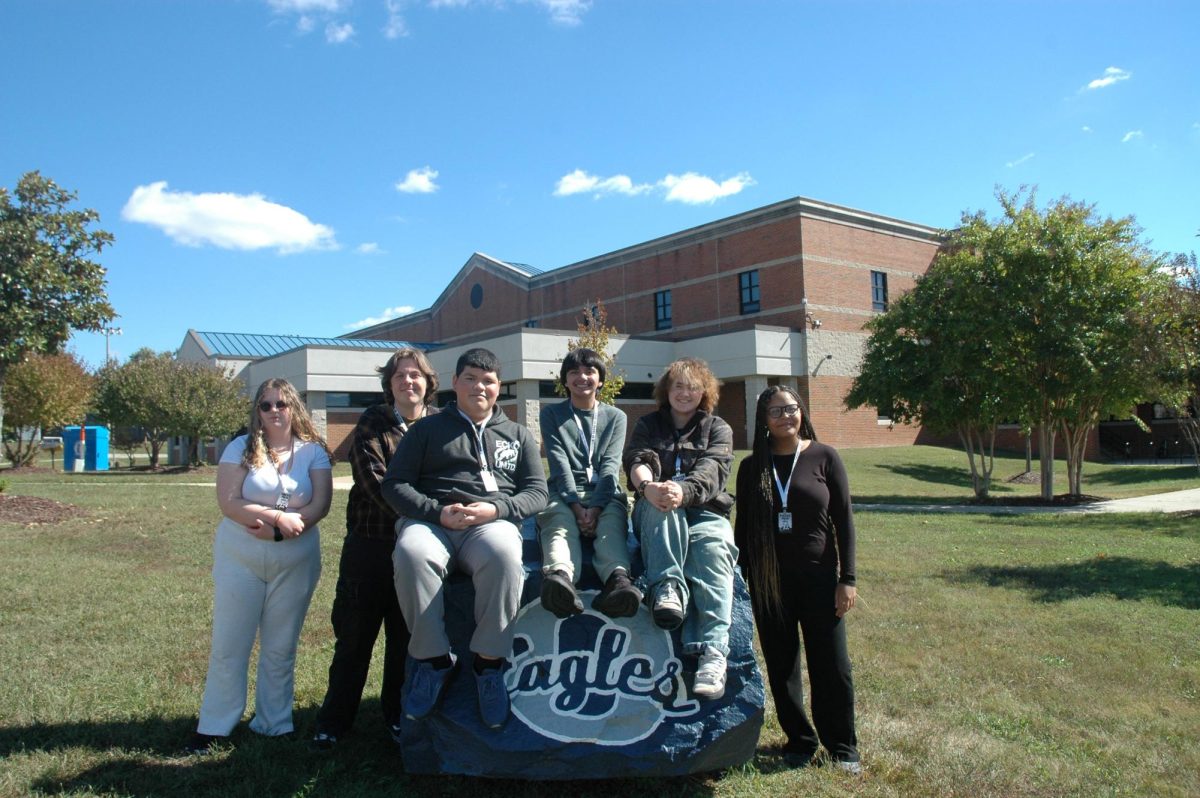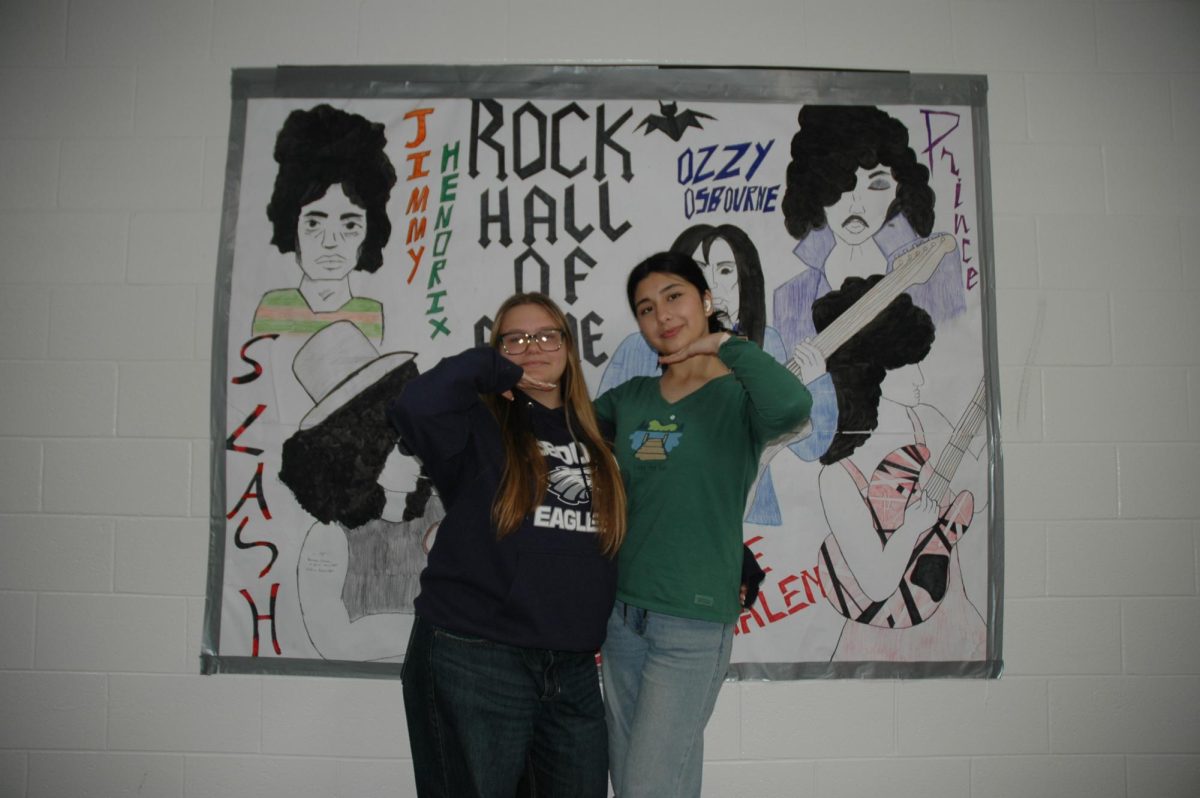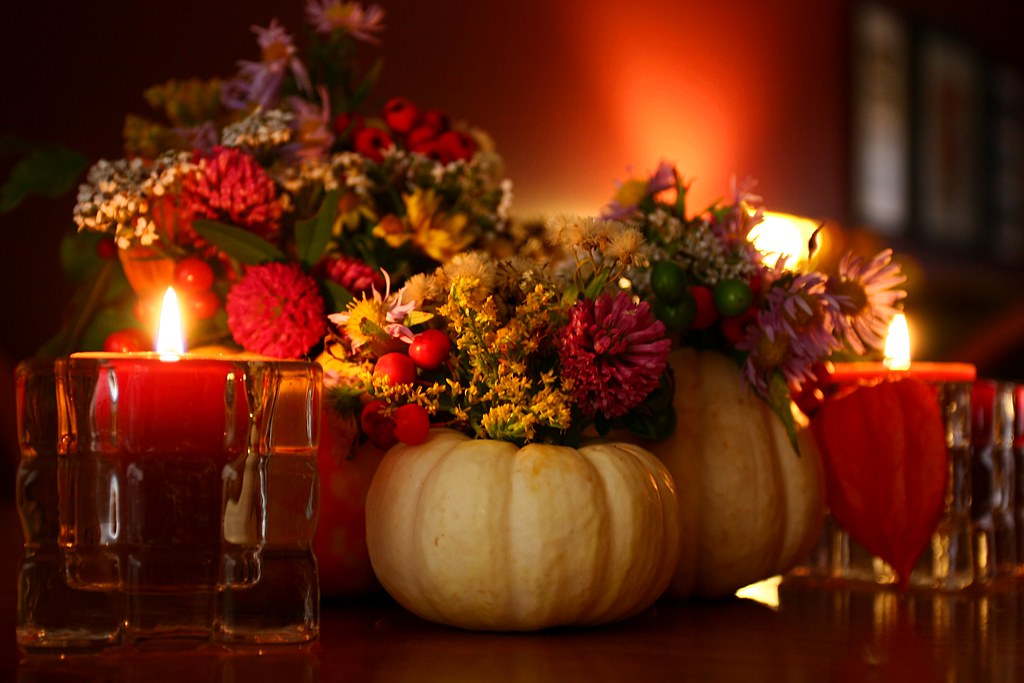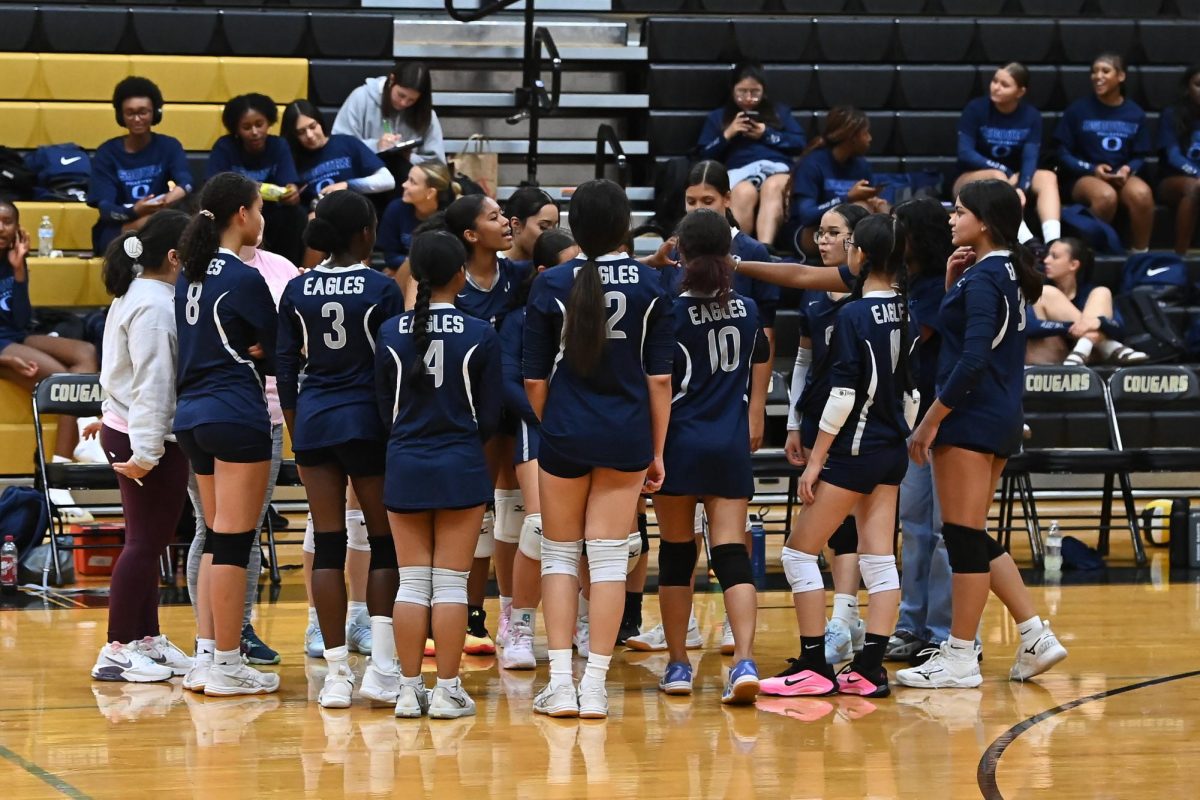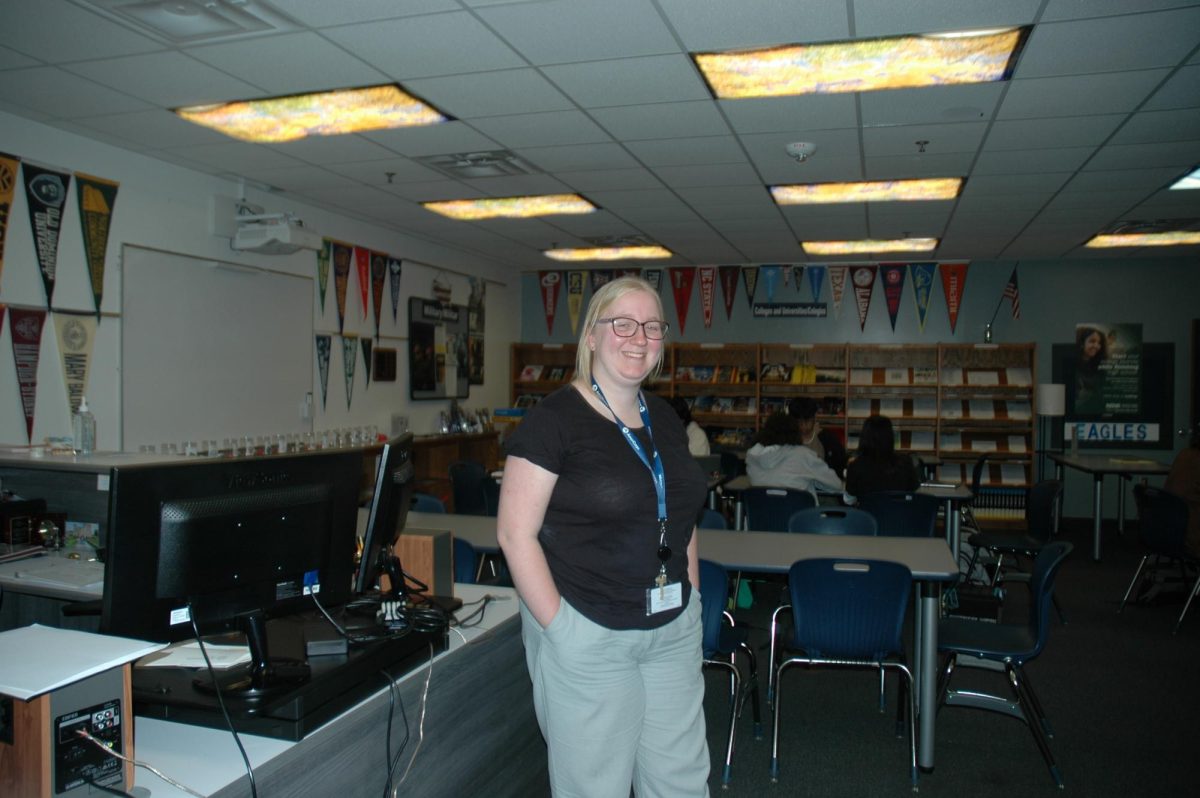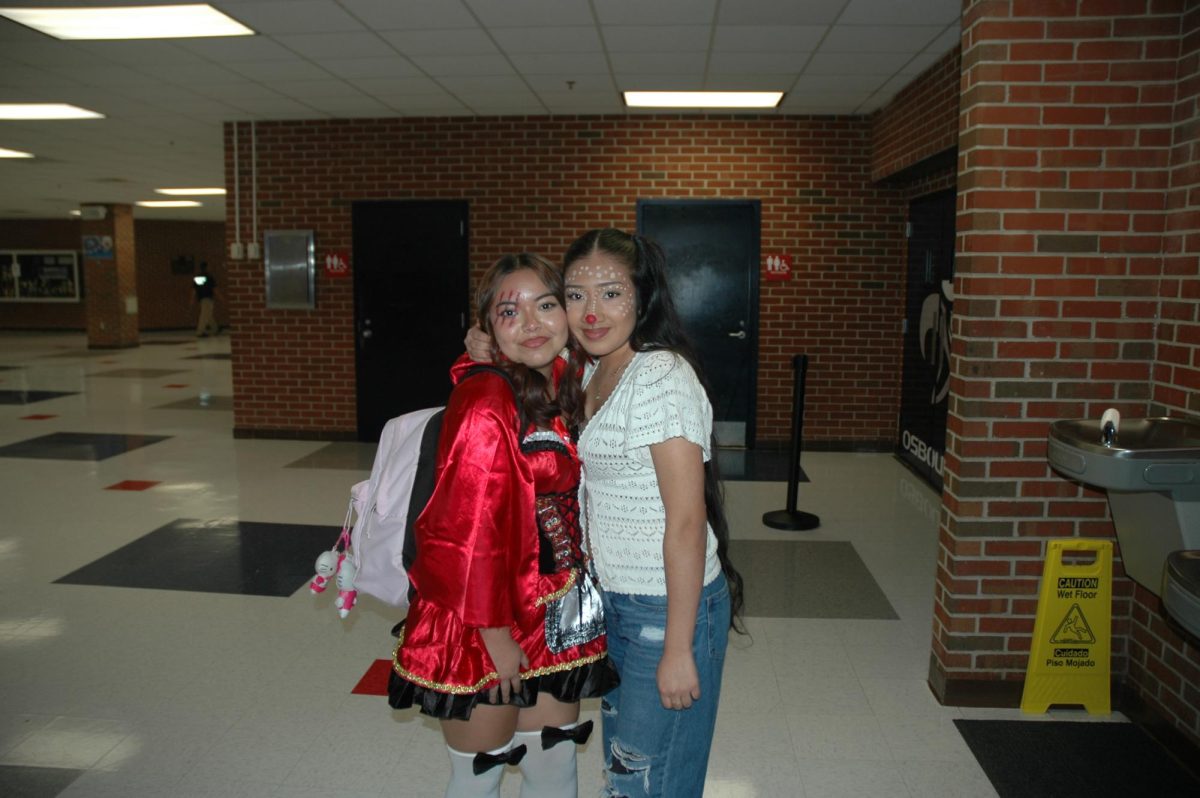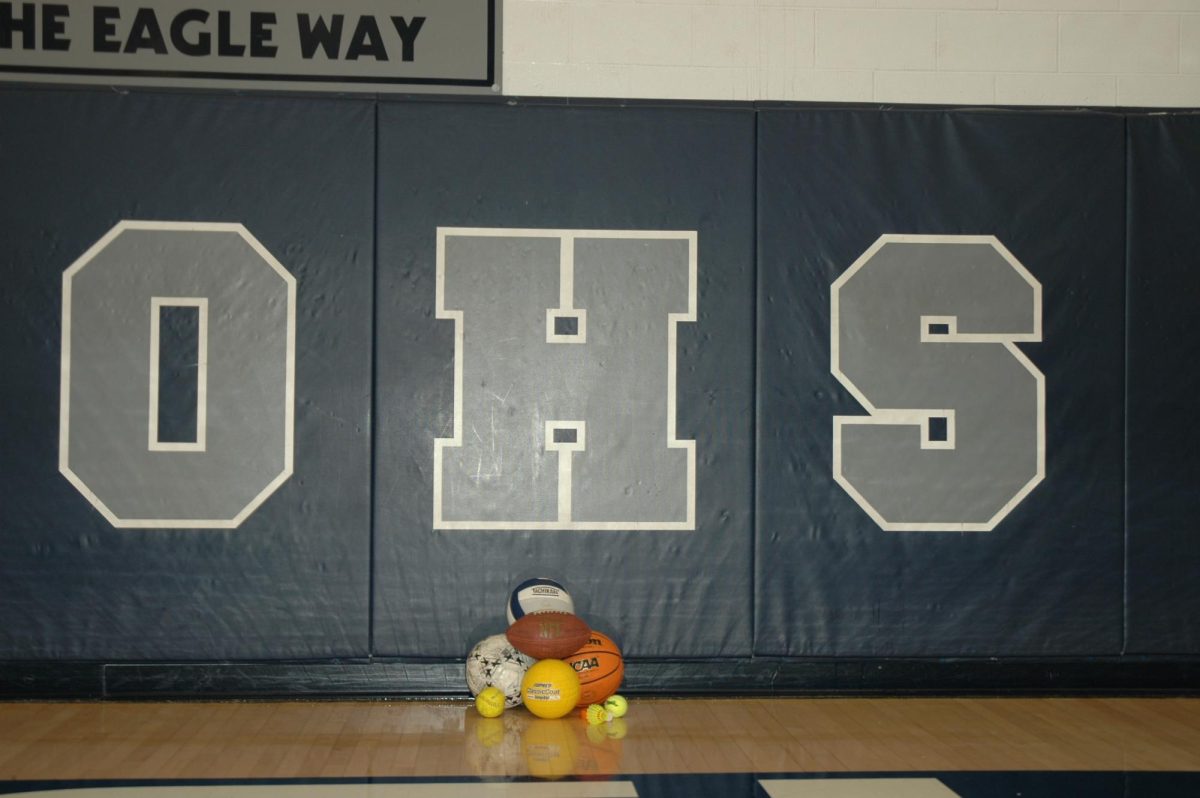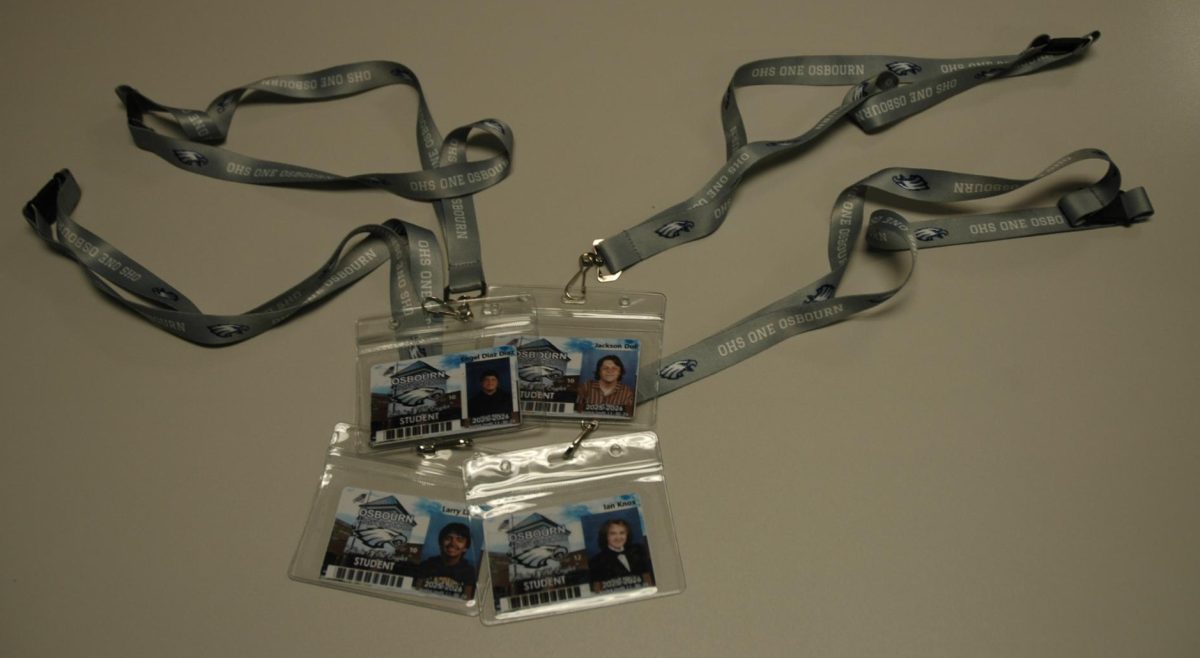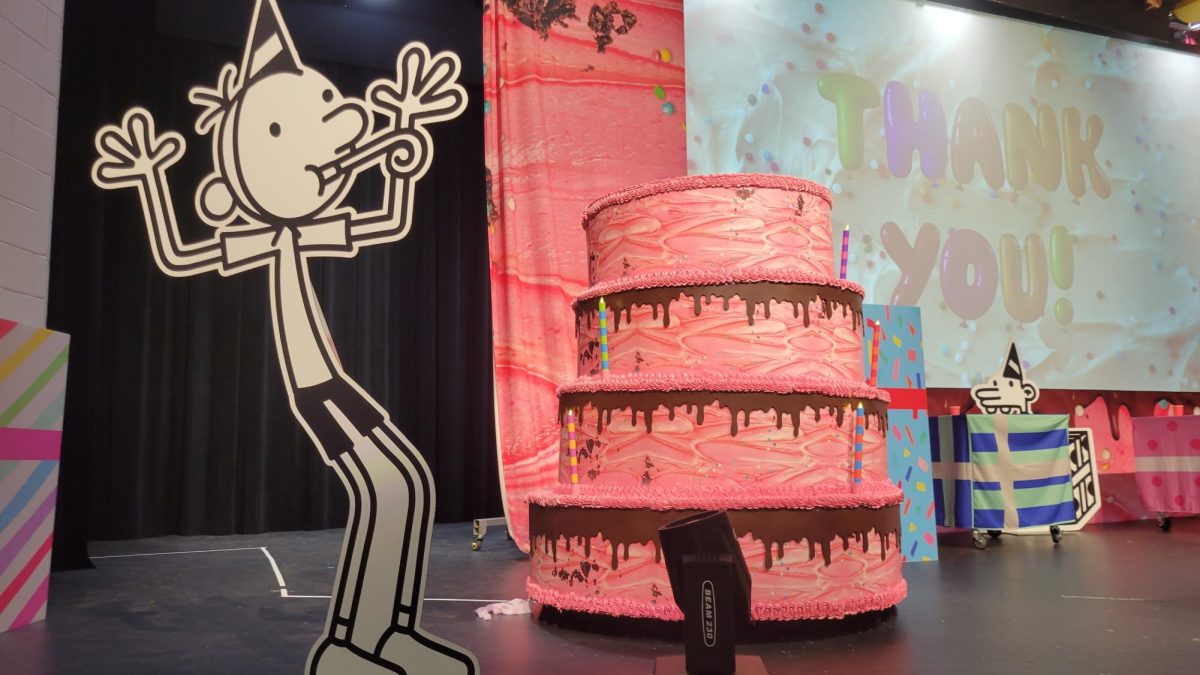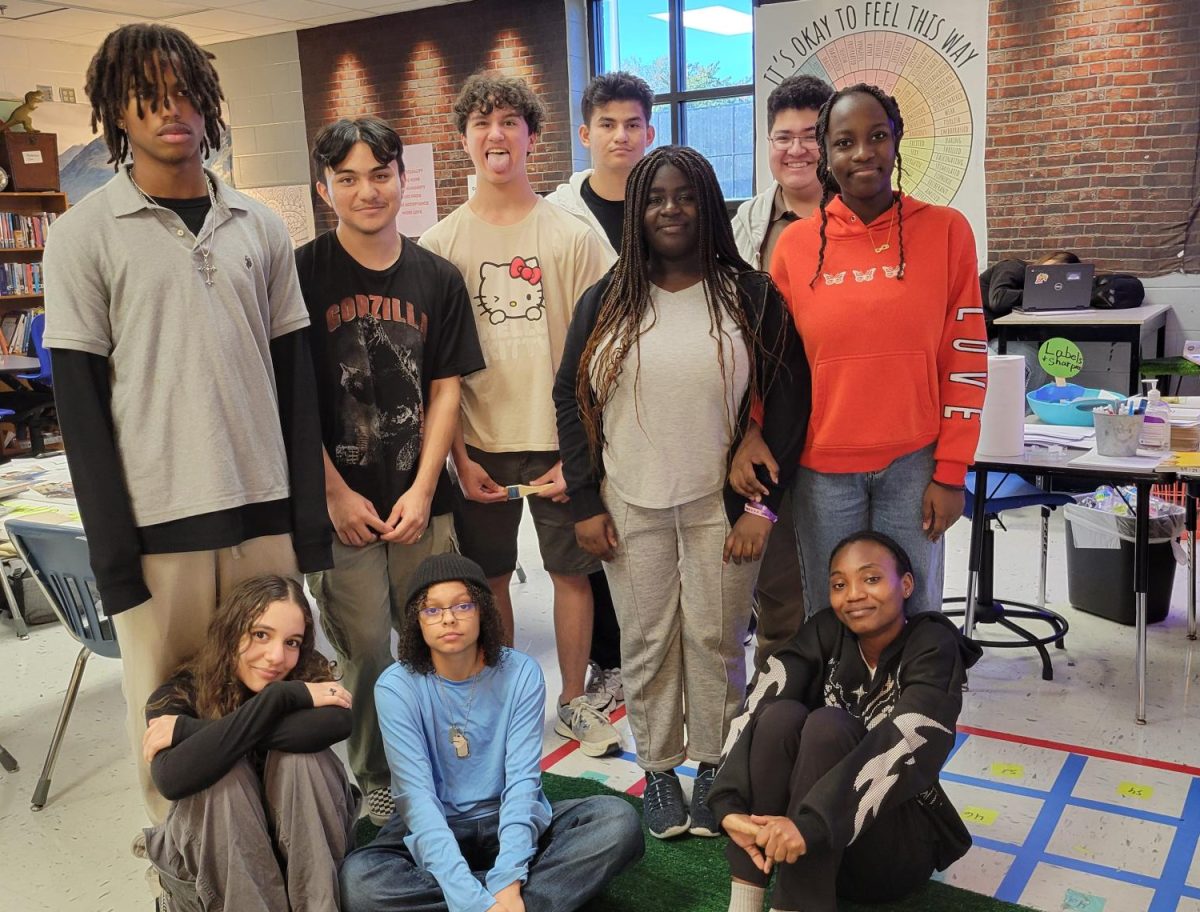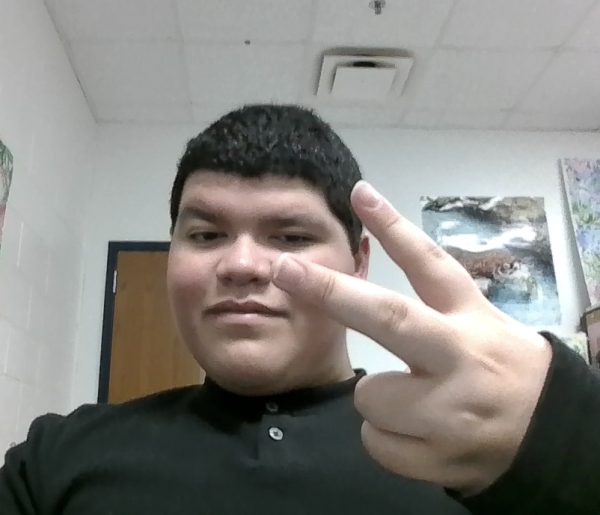Do you ever wonder if there’s a class at Osbourn solely for writing and editing journalistic articles? Well, if you’re on this website, you should surely know that such a class exists and is called journalism!
Journalism is a year-long class that you can take up to four times, but it gets more advanced every time you take it. According to Ms. Miller, the journalism teacher, the difference between journalism 1 and journalism 2 is that the higher-level journalists do a few extra things that beginners do not. “Both classes write articles for OHSTalon.com; the journalism 2 students have a higher word count requirement and also have to help edit articles. Eventually, I also want them to run the staff meetings where we select topics and organize coverage, but they have not done that yet this year,” said Miller.
Journalism 2 students are both journalists and editors; they are journalists when they write their own articles and are editors when they fix or correct any errors in other students’ articles. These editing responsibilities help to make sure their articles follow the AP (Associated Press) rules taught by Ms. Miller, too. “Journalism 1 and 2 are academic classes, so the material on our website absolutely needs to be appropriate for our intended audience. We also need to check for AI and plagiarism because we want the website to be our original work and competitive. We cannot enter competitions if there are issues with these things.”
Editing is much more than just correcting or fixing errors; editors also help make things make more sense, whether that is by adding additional sentences or reformatting their peers’ articles to be more in line with AP Style. Ms. Miller has also confirmed that she likes having skilled editors because they can help improve the quality of our articles. “So far, I love having a panel of editors to help improve our content!” Miller said.
The journalism 2 students themselves have somewhat varying opinions on editing others’ articles. “I think it’s really fun, I actually prefer it over writing my own articles. I think it’s really fun to see what people write about and to be able to edit those articles to make them flow nicely so they can be pushed out to the website. I think it’s really interesting and fun to do when I’m done with all my work,” said editor Jackson Doll.
“I love reviewing stuff, and I do really like to review articles and to see other people’s writing styles. I write a lot personally, so it’s really cool to bring it to a school class like that,” explained senior editor Ian Knox.
Journalism 2 students generally feel like they’ve improved since their previous journalism class. Briyanna Moody, a sophomore editor, has expressed that she thinks her interview questions have gotten better. She thinks the answers she gets for those said questions are more developed than they were originally during her first year of journalism. “I think my writing has improved significantly. I also think my questions have improved because I get good quotes and feedback from my sources.”
Ian feels less anxious than when he first started taking journalism. “Definitely, my anxiety with interviewing people has diminished, and my writing has improved.”
Sometimes it is hard to write articles for journalism, especially if you are new to the process. Ian said, “Unironically, you should listen to Ms. Miller; she knows what she’s doing and has all the qualifications. My other advice is to actually do the planning because it’s actually helpful, and the process gets faster the more you understand it.”
According to Ms. Miller, the planning steps are very important. “I have students start with a specific topic that interests them. They do a story proposal, then they work on a list of primary sources. They write 10 questions to ask their sources. Next, they actually conduct all of their research and interviews and submit their notes. We then meet and go through the notes to determine what information from the interviews the journalist wants to include in their story. Finally, the journalists write a first draft of their story. We spend a week proofreading and editing these drafts before publishing the final stories. It is a pretty lengthy process,” explained Ms. Miller.
But even then, everyone has their own way of researching and interviewing sources. Ms. Miller suggests you use the method that appeals to you. “I let my students use whatever interviewing method works well for them. If they choose to use a method involving phones (texting, calling, messaging), they need to do it on their own time, outside of school. I think most of my students just do their interviews in person or via email.”
Additionally, editor Aniyah Slaughter Diaz advises new students to get everything done on time. “You have to meet deadlines, because deadlines are a very important part of journalism,” she explained.
“The methods that are used to interview people depend on whether I’m doing them in text or in person. If I am doing them in person, I ask the questions thoroughly, and I let them know that they don’t have to answer all of them if they don’t want to. Over email, I will send the questions and let them answer them on their own. If the case were to be that I have to make them by a deadline that is coming up in a day or two, I would email them again and let them know that I need the quotes within that day or two. If they still do not send quotes, then I just don’t put them in my article,” said Briyanna.
Similarly, Aniyah does a mix of both options, too. “The majority of the time, I use email or text messaging to interview people. There is no right or wrong way to interview people as long as the questions are appropriate!” she said.
Although the class is small, there are many different article ideas that the students want to cover. Ian wants to focus on things related to politics and paleontology. “I would love to write about politics and some nerdy stuff like dinosaurs.”
Meanwhile, Jackson would enjoy writing about horror movies. “My dream story to write would be about horror movies, but we have a lot of restrictions on that based on age ratings. So I would love to write about one, but it would have to be a PG-13 movie.”
The Talon editors did not have an easy path to get to where they are, as Journalism isn’t an easy class, and the same can be said for its “sequel class.” Aniyah believes that if you continue to write, you will get better. “I feel like the more you get into the habit of writing, it becomes easier to produce ideas and write them into an article,” she explained.
Jackson thinks that over time, you will develop your own techniques when writing articles, which makes it easier. “I actually feel like it does because you develop your own technique when writing articles, like how you want to structure it, and it gets much easier over time. But I feel like once you develop your own flow, you’re just kind of running through that process in your brain as you’re writing.”
Overall, journalism is a fun class to take if you enjoy writing, as once you get in the habit, it gets easier over time, and you get more creative freedom!
What kind of articles would you like to see in the future on OHStalon.com?

